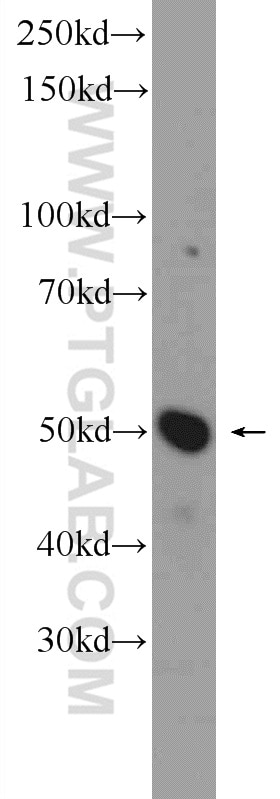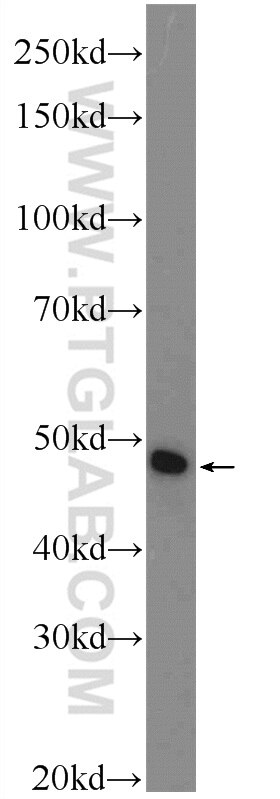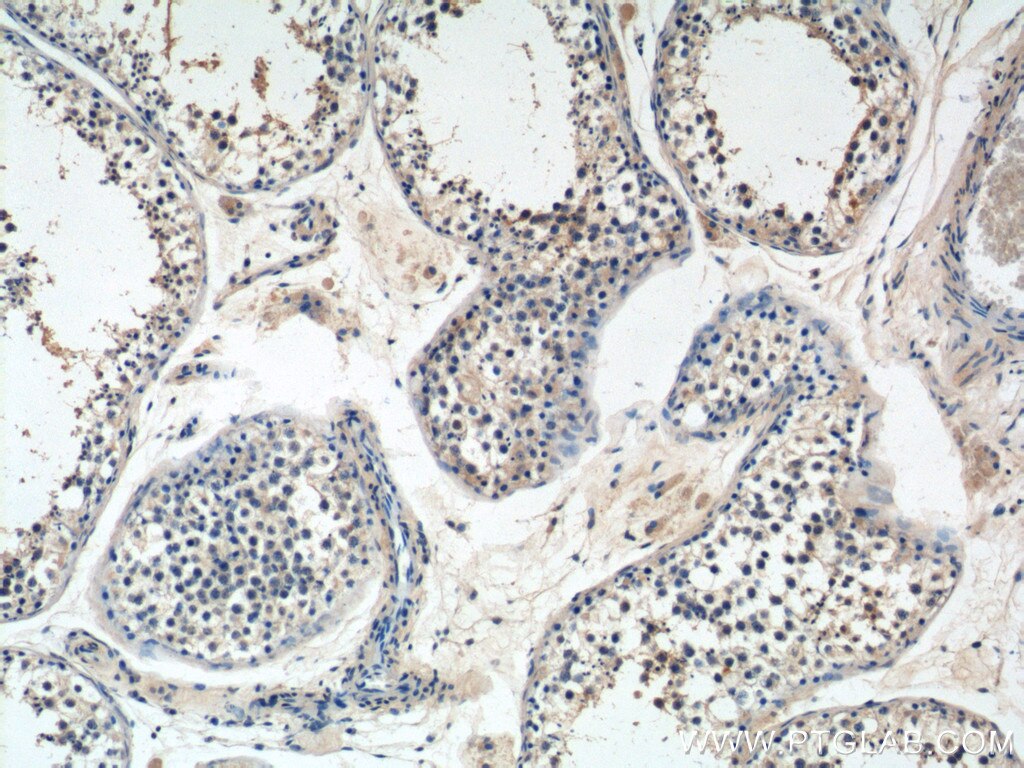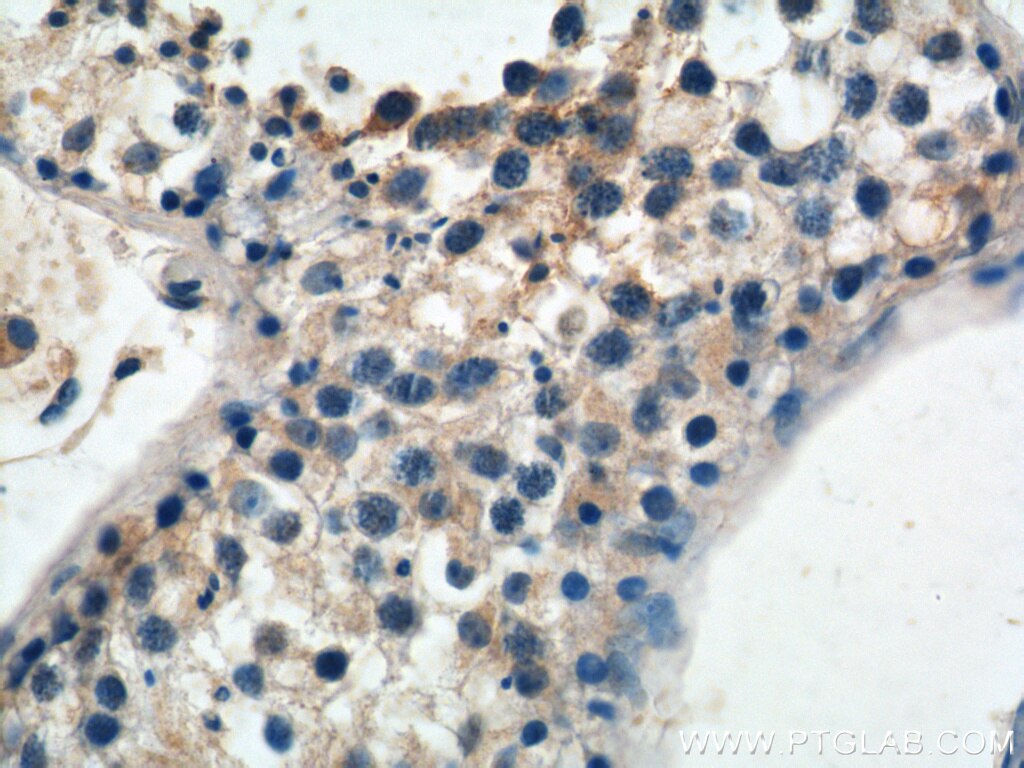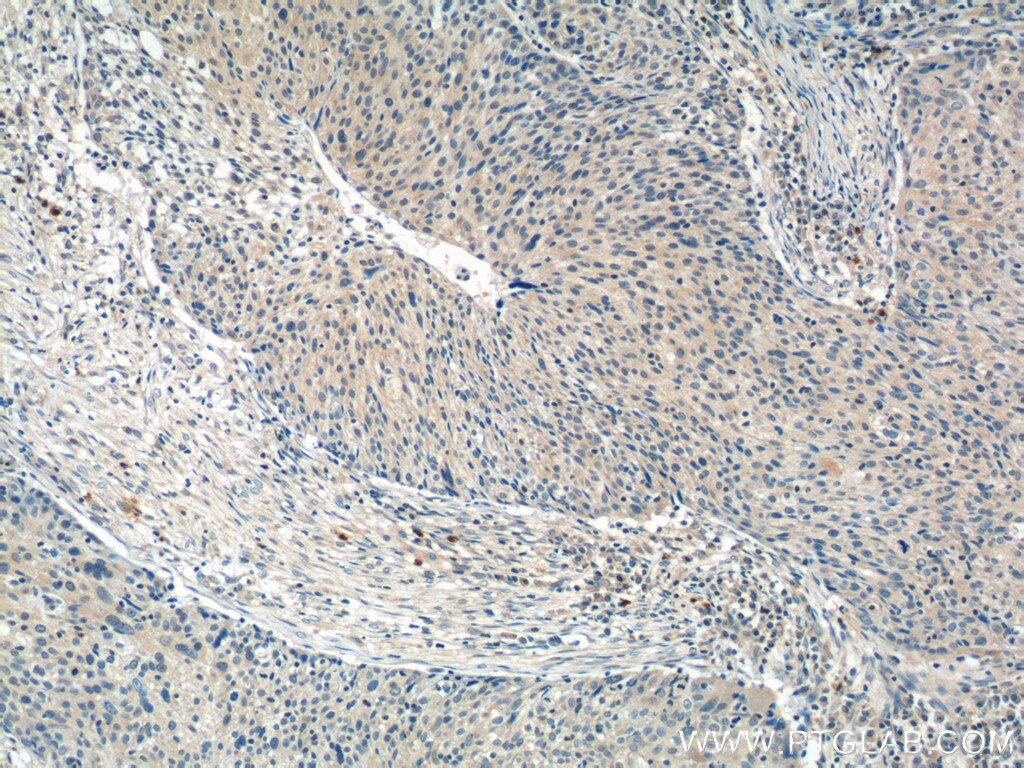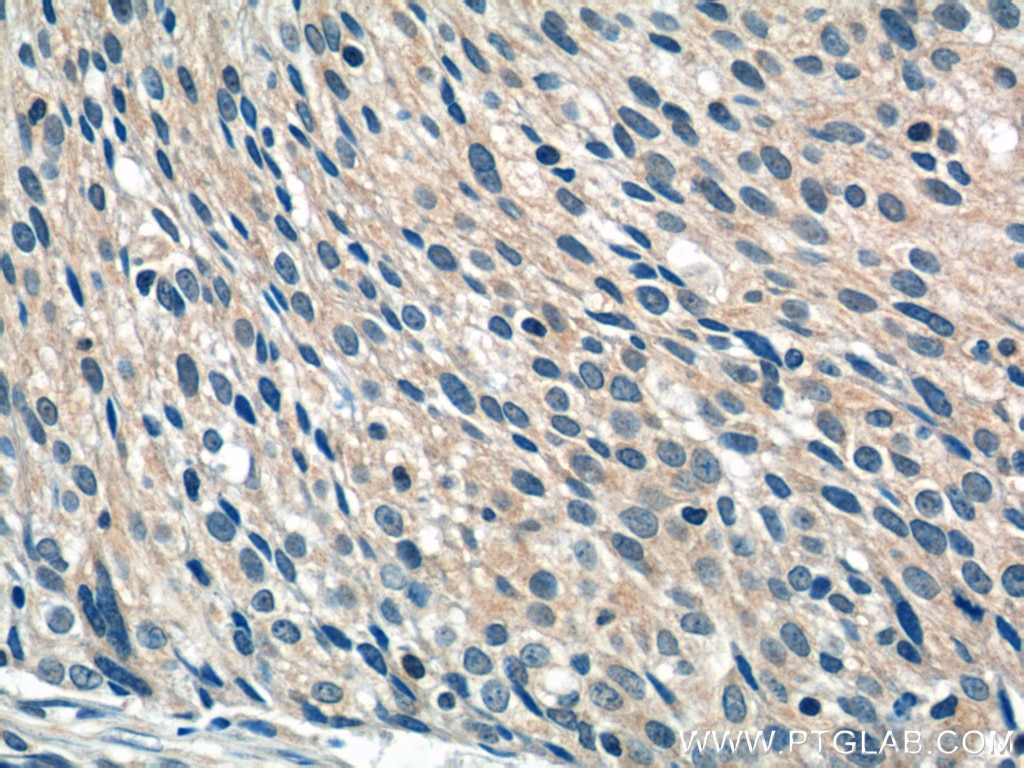WDR40A Polyklonaler Antikörper
WDR40A Polyklonal Antikörper für IHC, WB,ELISA
Wirt / Isotyp
Kaninchen / IgG
Getestete Reaktivität
human
Anwendung
WB, IHC,ELISA
Konjugation
Unkonjugiert
Kat-Nr. : 20478-1-AP
Synonyme
Galerie der Validierungsdaten
Geprüfte Anwendungen
| Erfolgreiche Detektion in WB | HEK-293-Zellen, Jurkat-Zellen |
| Erfolgreiche Detektion in IHC | humanes Hodengewebe, humanes Lungenkarzinomgewebe Hinweis: Antigendemaskierung mit TE-Puffer pH 9,0 empfohlen. (*) Wahlweise kann die Antigendemaskierung auch mit Citratpuffer pH 6,0 erfolgen. |
Empfohlene Verdünnung
| Anwendung | Verdünnung |
|---|---|
| Western Blot (WB) | WB : 1:200-1:1000 |
| Immunhistochemie (IHC) | IHC : 1:20-1:200 |
| It is recommended that this reagent should be titrated in each testing system to obtain optimal results. | |
| Sample-dependent, check data in validation data gallery | |
Produktinformation
20478-1-AP bindet in WB, IHC,ELISA WDR40A und zeigt Reaktivität mit human
| Getestete Reaktivität | human |
| Wirt / Isotyp | Kaninchen / IgG |
| Klonalität | Polyklonal |
| Typ | Antikörper |
| Immunogen | WDR40A fusion protein Ag14349 |
| Vollständiger Name | WD repeat domain 40A |
| Berechnetes Molekulargewicht | 453 aa, 51 kDa |
| Beobachtetes Molekulargewicht | 50 kDa |
| GenBank-Zugangsnummer | BC008893 |
| Gene symbol | WDR40A |
| Gene ID (NCBI) | 25853 |
| Konjugation | Unkonjugiert |
| Form | Liquid |
| Reinigungsmethode | Antigen-Affinitätsreinigung |
| Lagerungspuffer | PBS mit 0.02% Natriumazid und 50% Glycerin pH 7.3. |
| Lagerungsbedingungen | Bei -20°C lagern. Nach dem Versand ein Jahr lang stabil Aliquotieren ist bei -20oC Lagerung nicht notwendig. 20ul Größen enthalten 0,1% BSA. |
Hintergrundinformationen
WDR40A, also known as DCAF12, is a 51 kDa protein. It may function as a substrate receptor for CUL4-DDB1 E3 ubiquitin-protein ligase complex(PMID: 16949367). This antibody specifically recognises the 51 kDa protein.
Protokolle
| Produktspezifische Protokolle | |
|---|---|
| WB protocol for WDR40A antibody 20478-1-AP | Protokoll herunterladen |
| IHC protocol for WDR40A antibody 20478-1-AP | Protokoll herunterladen |
| Standard-Protokolle | |
|---|---|
| Klicken Sie hier, um unsere Standardprotokolle anzuzeigen |
